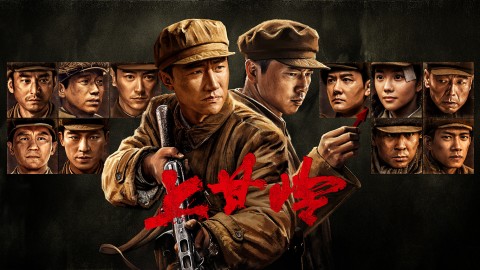Episode 27 recap: The verdict for the trafficking case has been announced.
At this moment, in the courtroom, different opinions are being presented regarding the child trafficking case. Defense attorneys are also defending the defendants and arguing that although they are guilty, they are also victims themselves and did not exploit the children for economic gain in any specific region. Due to the significance of the case, Qi Heng, representing the Judicial Committee of the Supreme Court, has led a team to listen to the reports on justice and harmony. Each person has expressed their viewpoints and made suggestions regarding the sentencing of the defendants.
While Zhang Yan Jun believes that the death penalty should be imposed on the defendants, Wang Mo disagrees, stating that the crimes committed do not warrant the death penalty. This has led to a disagreement between the two parties. Qi Heng understands Wang Mo's perspective, but perhaps failed to articulate it clearly. Qi Heng feels that all thoughts should be expressed and hopes to obtain everyone's recognition, emphasizing the need for careful consideration when it comes to imposing the death penalty.
Zhang Yan Jun consistently emphasizes that Matou Village does not have any issues of water source contamination. Since Qi Heng did not participate in this matter, he cannot provide an absolute opinion. Several days later, the court decides to sentence the defendants involved in child trafficking to 15 years of imprisonment. Qi Heng, on behalf of the court, holds a press conference and provides an explanation for the case.
Reporters inquire why the defendants were not sentenced to death. Qi Heng offers his own explanation, stating that the country has already significantly reduced the use of the death penalty. It used to be an unquestionable topic, but Qi Heng explains it very clearly. Zhang Yan Jun, watching Qi Heng's statement on television, initially intended to make him look bad in front of the press. However, unexpectedly, Qi Heng managed to clarify the situation.
The police once again go to the location where the suspects hid the children and discover that one of the holes is empty. Upon closer inspection, they find some skeletal remains and a hidden pipeline nearby. After conducting examinations, the police quickly determine that the remains are not those of children. It appears that a new case is about to begin its trial.
Due to the previous incident, Guo Lun initially wanted to investigate news related to his sister, but he was stopped by Qi Heng. Because of this, Guo Lun has been ignoring his brother-in-law for a long time. Ma La Song later took the initiative to comfort Guo Lun. However, upon learning that a female skeleton had appeared in Matou Village, an ominous feeling arose. Ma La Song found Lao Hou and inquired about the possibility of conducting a DNA comparison between relatives. Ma La Song suspects that the remains may be related to Guo Nian. She also told Lao Hou not to inform Qi Heng about this matter.
The Environmental Protection Bureau is about to inspect the Jiangyun Chemical Plant. Upon hearing this, the factory manager, in order to prevent the environmental officials from discovering any issues, quickly instructed the workers to dispose of the wastewater in violation of regulations, aiming to leave no evidence. Everyone had no choice but to follow the manager's orders. The manager went to the entrance to delay time, ensuring that the Environmental Protection Bureau wouldn't find any traces.
Meanwhile, the workers were racing against time to discharge the wastewater. The manager gathered everyone in the office for inspection. Unexpectedly, the head of the Environmental Protection Bureau was also delaying in his office, unwilling to leave. The subordinates wanted to conduct an on-site investigation, but the bureau chief remained seated in the office. Only when everything was ready did they finally proceed to the scene for inspection.
The factory workers were working hard at that moment, and they even closed the discharge gate to prevent others from detecting any issues. However, the environmental officials discovered a problem with the so-called abandoned room. The manager provided explanations and claimed that there were confidential documents inside. With the bureau chief echoing his statements, naturally, no problems were found.
The officials returned to the village to conduct an on-site investigation. The bureau chief switched the samples they collected, ensuring that there would be no issues with the items taken back. The factory manager even invited the bureau chief to dinner, with Secretary Su accompanying them. In reality, the bureau chief didn't want to engage in unethical activities, but they had leverage over him, forcing him to comply with their arbitrary arrangements.



Is it acceptable to kidnap other people's children just because you lost your own? The kidney failure suffered by oneself and the villagers was caused by sewage. Why isn't anyone addressing this issue?
In fact, the villagers are well aware that they rely on working in factories to survive, and they don't want the factories to be shut down. When journalists investigate, they even drive them away.
Their own incompetence and cowardice led to their illnesses and infertility. Why should that serve as a justification for trafficking other people's children?
Capital punishment is a must. Families that have lost children never recover fully. Such actions are the most detrimental to society. If those who have lost children suffer from psychological impacts and then affect the lives of others, shouldn't we consider the associated responsibilities?
All families would support the death penalty. I don't understand what the lawmakers are thinking. Is there a need to deliberate on such inhumane acts anymore?